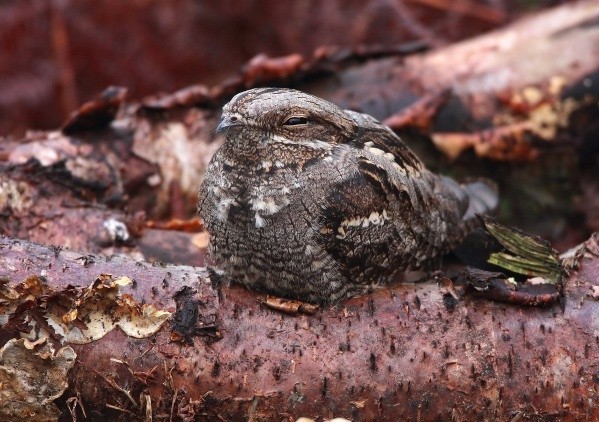Dog control urged to help Scotland's ground nesting birds
With the ground-nesting bird season now in full swing, many of Scotland's most amazing birds are settling down to try and rear the next generation. But with more people getting out and about to enjoy recreation and leisure off the beaten track, Forestry Commission Scotland has urged forest visitors to be mindful of the needs of these birds and to help minimise any disturbance that could affect their breeding success.

Nightjar, undisclosed site, Gloucestershire (Photo: Lewis Thomson)
Graeme Findlay, for the Commission in the North Highlands District, said: "Everybody needs to be careful — whether they're taking their bike for a ride along forest tracks or even if they are just going for a walk — but we're putting out a special plea to dog-owners to keep their dogs on a short lead or under close control during the bird breeding season. If dogs stay on the tracks with their owners, the problem is more-or-less solved. Dogs will be dogs and open countryside or a forest full of fascinating scents can tempt event the most good-natured animals. It's easy for a free-running dog to get out of its owner's sight — and the last thing we want is for any dog to suddenly reappear with an unwelcome 'find' in its jaws. The loss of a hen also means the loss of a clutch."
"We welcome dog-owners and their dogs to Scotland's forests — but we would urge all owners to observe the Scottish Outdoor Access Code. The golden rules are: Keep dogs on a short lead or under close control and don't linger if you're causing alarm to wildlife."

Black Grouse, undisclosed site, Perth & Kinross (Photo: Ian Fulton)
Several species of ground-nesting birds are potentially at risk from now until the end of the nesting season in August. As well as Capercaillie and Nightjars nesting within the forest, Black Grouse, Short-eared Owl and Hen Harriers that can be found on larger heather banks and open hillsides are also vulnerable. Capercaillie and Hen Harriers are also protected by law and disturbing or harming these birds is potentially an offence.

